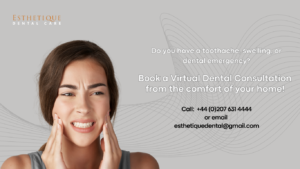A dental implant is a fixed solution for one or more missing teeth and can help restore both your smile and your quality of life.
An implant is made up of an artificial titanium root that is fixed to the jawbone, with a crown or bridge fitted on top. They can be made to look and feel just like natural teeth. If you are concerned about your replacement teeth looking realistic or coming loose, implants are an ideal option.
Implants also safeguard your overall dental health. Replacing missing teeth is extremely important, as missing teeth cause bone loss which can age your face could potentially cause adjacent teeth to become loose too.
We also do bone grafts or sinus lifts if required for the adequate placement of an implant.
Dentures are removable false teeth made of acrylic (plastic), nylon or metal. They fit snugly over the gums to replace missing teeth and eliminate potential problems caused by gaps. Gaps left by missing teeth can cause problems with eating and speech, and teeth either side of the gap may grow into the space at an angle.
Teeth can be replaced with a fixed bridge if there are teeth in the area that are adequate in number and sufficiently healthy and strong to support the artificial teeth. In order to fabricate a bridge, the adjacent teeth are prepared by reducing their size (or cut down) to remove all the enamel, making room for the prosthetic tooth restoration. Alternatively, resin bonded bridges can be made where possible without the extensive removal of tooth tissue of the adjacent teeth.
Although permanent teeth can last a lifetime, teeth that have become damaged or decayed may need to be removed.
Other reasons include:
